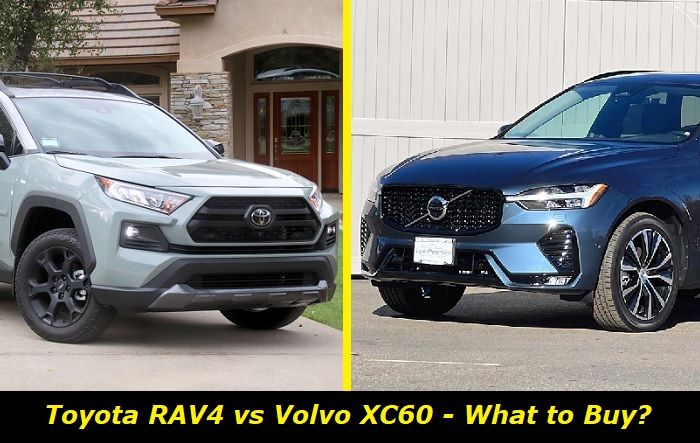Ford stirred controversy and mixed reviews when they chose an aluminum body panel for their F-150 trucks in 2015. Soon after - in 2017 - they equipped all their super-duty category trucks with a similar aluminum body.
The motor industry experts and Ford's biggest competitors, Chevrolet and General Motors, were convinced that Ford had made a huge mistake that would significantly reduce the lifespan of their classic American pickup trucks. Most people seemed to prefer steel - they tried and tested the metal of choice for pick-up frames and body panels.
Steel has remained popular because it is tough, affordable, and easy to fix. However, aluminum has several things going for it too. If you own or drive a Ford car with an aluminum body, chances are that you are very concerned about how this will impact you. The concern is likely to be doubled if you live in a cold region where rock salt is used for deicing the roads.

Fortunately, despite them voicing valid concerns, they are wrong about Ford's aluminum body. Aluminum has been successfully used to manufacture frames and chassis for numerous cars, it just never had been used for pickups before. This article will examine how your aluminum body will likely hold up against road salt. It will also help you figure out how to protect your aluminum body from corrosion due to road salt.
Why Ford Chose Aluminum Bodies
Ford was justified in choosing aluminum for various reasons.
- Aluminum is Better at Resisting Corrosion than Steel
Most people bought into the hype and expected the Ford aluminum trucks to rust away the second they left the dealership floor. You will have to tolerate a science lesson of sorts regarding this one. Don't worry; it will be brief and to the point.
What was not highlighted during the outrage over Ford's decision was that steel is famous for rusting, while aluminum is famous for forming a protective layer of aluminum oxide that usually prevents further corrosion. When steel is subjected to any form of moisture or worse, salt water, the iron in it is oxidized (meaning it loses electrons) to water.
How Steel Handles Rock Salt:
The stable iron in the steel is then transformed (ionized) into reactive iron(ii) ions. Oxygen in the water bonds with the electrons lost by the iron to form hydroxyl ions. At this stage, your shiny steel car is ripe for rusting when the iron(ii) ion and the hydroxyl ions form hydrous iron oxide, a reddish-brown substance known as rust. Car manufacturers try to slow the descent of steel into rust by mixing it with chromium, a step that increases production costs.
Unfortunately, when faced with the extremely salty water that makes the puddles left on the road after the salt has melted, stainless steel will give way and rust even when mixed with chromium.
How Aluminum Handles Rock Salt:
Aluminum is hands down more corrosion-resistant than steel; all the nerds - not just those at Ford Engineering laboratory - agree. Nonetheless, as your friendly neighborhood Chemistry teacher will tell you, it is still vulnerable to corrosion. They will also tell you that iron is the only metal that rusts; all the rest undergo corrosion. The process is similar, but the names are different because science is fun like that.
When aluminum comes into contact with moisture, rather than ionize as the iron in stainless steel does, it reacts with the water to form a thin layer of non-permeable aluminum oxide. Once this layer is formed, the aluminum underneath is protected from further exposure to moisture. An aluminum body is guaranteed to corrode at a slower rate than steel.
This does not mean that your Ford aluminum body is invulnerable to rust. Over the years, corrosion is bound to begin proceeding. Drivers who live in snowy regions are likely to suffer the effects sooner rather than later due to the high rock salt concentration in water. Salty water can corrode aluminum because it breaks down the protective layer of aluminum oxide and prevents a fresh one from forming.
- Aluminum is Lighter than Steel
Considering aluminum is roughly three times more expensive than steel, Ford did not decide to switch over lightly. You are likely to feel the cost of aluminum when you need body work done on your pickup truck. Favor swung onto aluminum's side because it is much lighter than steel and therefore serves the consumer better in the long run.
Aluminum body pickup trucks are much lighter than their steel relatives. A light truck can pull away quickly and effortlessly. Your truck is much lighter and can offer higher speeds and good fuel economy. Whereas a steel truck will need significant throttle power to pull away from a dead stop, your aluminum truck will not need as much. The less fuel you need to accelerate, the more fuel-efficient your truck will be.
Additionally, a lightweight truck will handle it better. You will be able to brake fast and change direction quickly. Truck drivers know that agility, in some cases, is more important than towing capabilities.
- Aluminum is Strong Enough
Steel has a reputation for being the backbone of the industrial revolution, while aluminum is known for making soda and beer cans. Ford uses military-grade aluminum - the 6000 series for use in the trucks.
Aluminum is strong enough to haul and tow; whatever you have in mind will remain light enough to now lower the car's performance. It is an ideal compromise that gives consumers the best bang for their buck. A lighter truck could make a difference in how your car is classified for road access, fuel and road taxes, and fuel emission tests.
How to Save Your Ford Aluminum Body from Corrosion
Road salt does not have to win over your Ford aluminum body simply because you live in an area where road salt is essential for safety. Several maintenance tips will go a long way in ensuring your aluminum body stands the test of time.
Now that you know aluminum does not rust on exposure to a bit of water or moisture, you are ready to learn how to keep that pesky road salt from corroding your aluminum body. Dry salt poses no harm to your aluminum body. Rock salt is so dangerous to your aluminum body because it dissolves the ice and forms puddles of brine. Brine is very salty water.
Salt alone does not harm aluminum, and neither does water. Combine the two, and your aluminum body is suddenly as vulnerable as a stainless steel one. You do not need to worry because, with the proper care, aluminum has proven to be a popular material for making seafaring boats. If these boats do not get eaten away by salty seawater, your Ford aluminum body should be able to withstand several winter months with no sweat.
These tips highlight the best way to ensure the salt water does not corrode your aluminum body. Read on to find out how to stop salt corrosion in its tracks.
- Removing Surface Corrosion
Look out for chalky white powder and pits on the surface of your Ford aluminum body because they indicate that you are in a battle with salt corrosion. You will need to remove the white powder by moistening the area with lemon juice, vinegar, or a store-bought aluminum clear. Scrub the area lightly with a mildly abrasive cleaning pad until you get to the metal. As discussed below, you will need to dry the area and seal the metal.
- Sand Areas that are Heavily Pitted
Any section of your aluminum body that has suffered from heavy pits due to salt corrosion is best sanded to get a smooth finish. Proper finishing ensures that corrosion makes your paint coat bubble and peel off. You are well advised to wash the area described above to remove any dirt and debris before sanding. Sand the pitted area when wet or dry with 300-grit sandpaper until the pits are smooth. You can then polish the section 700 grit sandpaper.
- Use High-Quality Paint
A high-quality coat of paint is a very effective method of protecting your aluminum body from rock salt corrosion. Aluminum requires to be etched before painting to guarantee that protection lasts. Etching is a process that uses mild acid to create tiny scratches on the aluminum surface so that the paint can attach properly. Vinegar will do the job if you do not have a commercial etching acid.
- Use Insulated Fasteners
One of the quickest ways to sacrifice your aluminum body to corrosion is by using uninsulated fasteners of dissimilar nature. The two metals will react, and one will undergo galvanic corrosion. Saltwater is a catalyst for galvanic corrosion.
Ensure that your aluminum body is not in direct contact with your steel or brass components. Aluminum falls low in nobility and is likely to rust in the presence of other metals.
Conclusion
Your Ford aluminum body is superior to the steel naysayers. All you have to do is maintain it properly to ensure rock salt does not wreak havoc. An essential tip is to hose your car down with fresh water before parking it for the night.
About the authors
The CarAraC research team is composed of seasoned auto mechanics and automotive industry professionals, including individuals with advanced degrees and certifications in their field. Our team members boast prestigious credentials, reflecting their extensive knowledge and skills. These qualifications include: IMI: Institute of the Motor Industry, ASE-Certified Master Automobile Technicians; Coventry University, Graduate of MA in Automotive Journalism; Politecnico di Torino, Italy, MS Automotive Engineering; Ss. Cyril and Methodius University in Skopje, Mechanical University in Skopje; TOC Automotive College; DHA Suffa University, Department of Mechanical Engineering






Add comment